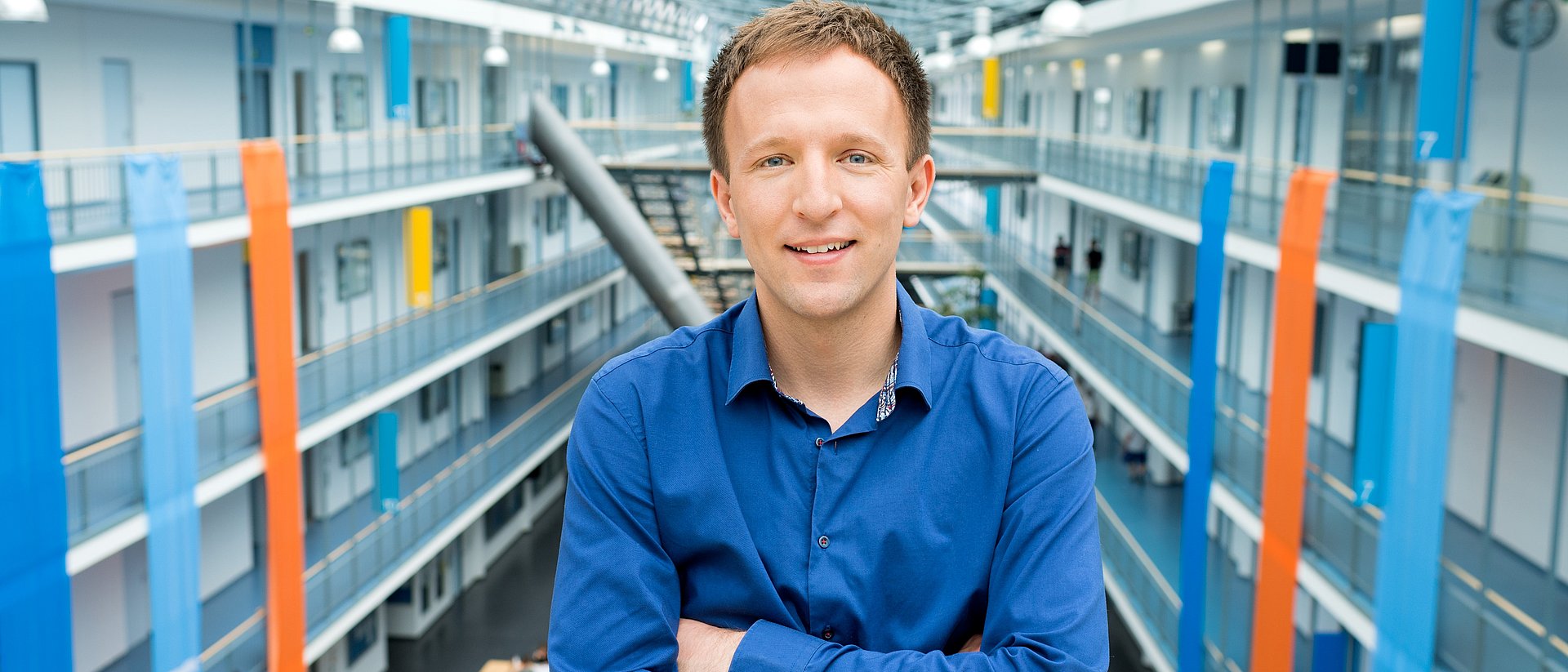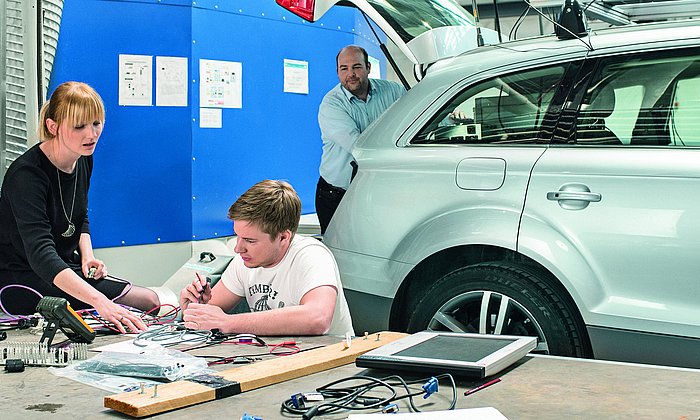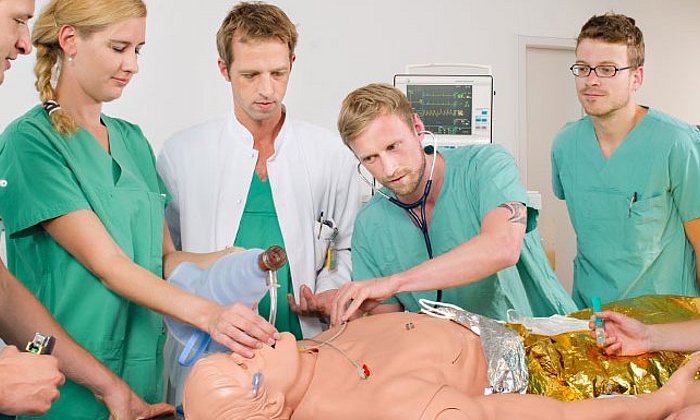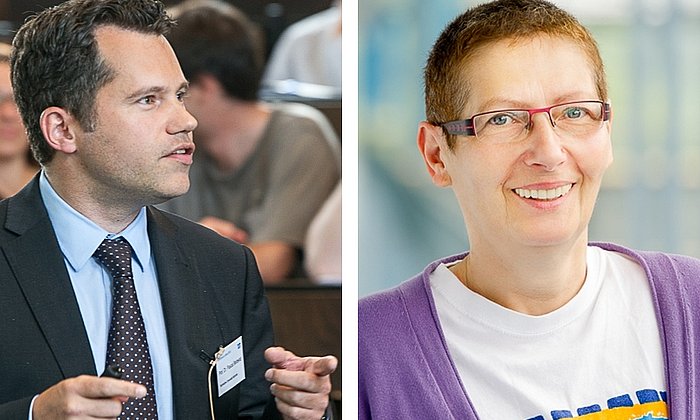Dr. Stephan Krusche receives Ars Legendi Prize
Equal opportunities through digital teaching

In Stephan Krusche's courses, just leaning back and letting the lecturer talk is not an option. "It's a priority for me for the students to become active participants in the teaching process," he explains. "Especially in informatics and software engineering, it is very important to try things out for yourself."
With over 1800 students with varying levels of prior knowledge, as in the lecture "Introduction to Software Engineering," this is a big challenge.
Direct feedback on assigned problems
Dr. Krusche worked with his team to develop the learning management system Artemis. It resembles the better-known Moodle learning platform, but offers more functionality. "We use the system to set problems for the students and give them immediate feedback on their results." This feedback not only shows whether a solution is correct, but also indicates where mistakes were made – a remarkable technical achievement.
Along with programming exercises, the system assigns various quizzes and modelling tasks to check students' understanding of the material. "We also integrate text assignments and teamwork for the students to complete," says Dr. Krusche.
Students submit questions in chat mode
In the past, when Dr. Krusche was still facing students in the lecture hall, some participants were already opting to follow the live stream. "That was simply because 1800 students don't fit into a single lecture hall," he explains. "And there's also less motivation to follow the lecture on a screen in a second hall, like at the movies." Consequently, the forced switch to digital teaching as a result of the coronavirus crisis was relatively simple. "For me personally, the biggest adjustment was having to lecture in an empty room," says Dr. Krusche.
But it is still possible to communicate with the listeners – via live chat. And there is actually more feedback than in a regular classroom session. "In a regular lecture of that size, not many students are willing to raise their hand," explains Dr. Krusche. Most questions are answered directly by tutorial leaders. Questions of interest to everyone are collected to be raised later during the lecture.
Individual support provided
To ensure that students receive the support they need, they are divided into 80 working groups, where the focus is on active participation. More than 50 tutorial leaders work with the students in small groups. They know their groups personally and can thus address individual problems more effectively. The team has also empirically demonstrated that this format benefits students' performance.
As well as addressing individual needs, the digital formats also support barrier-free content. A blind student was actually able to solve modelling tasks involving diagrams. She did this with a tablet application developed by Dr. Krusche and his team, which included drag-and-drop functionality to move elements. When she tapped a graphic element, the tablet vibrated and read out the element label.
"Overall commitment to teaching"
Along with the Artemis platform, the Departmental Student Council of Mathematics, Physics, Informatics, which nominated Dr. Krusche for the Ars Legendi Prize for Excellence in University Teaching, also praised his commitment in developing the "iPraktikum". In this internship program, students gain insights into industrial software processes in cooperation with respected companies.
The jury citation states: "It is important to note that Dr. Krusche is not being honored for just one outstanding course, but rather for his overall commitment to teaching. He focuses on the success of all students, and not only the top performers, both in the introductory phase of their studies and in large-scale courses with up to 2000 enrolled."
- Images for editorial use
- The prize, presented by 4ING, the umbrella organization of the engineering and informatics faculty associations, and the Stifterverband für die Deutsche Wissenschaft, is awarded exclusively to outstanding and innovative university teachers in engineering and informatics at the member universities of 4ING. Dr. Stephan Krusche will receive his award in an online lecture on July 23, 2020. The prize is funded by Gesamtmetall, which represents employers in the metal industry in Germany, under the THINK ING initiative.
Technical University of Munich
Corporate Communications Center
- Stefanie Reiffert
- stefanie.reiffert@tum.de
- presse@tum.de
- Teamwebsite
Contacts to this article:
Dr. Stephan Krusche
Technical University of Munich (TUM)
Chair for Applied Software Engineering
(Prof. Dr. Bernd Brügge)
Tel: +49 (89) 289 - 18233
krusche@in.tum.de



